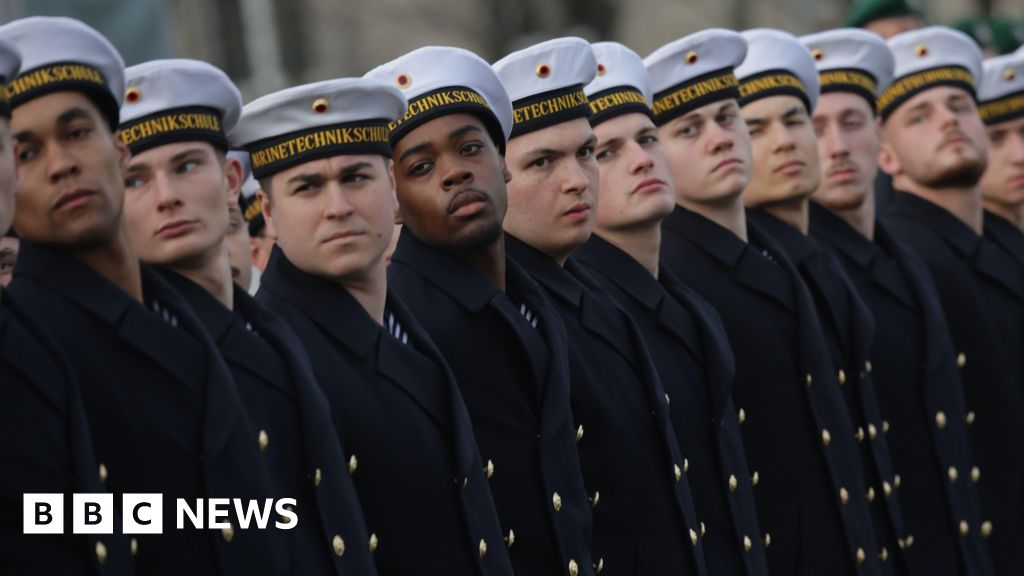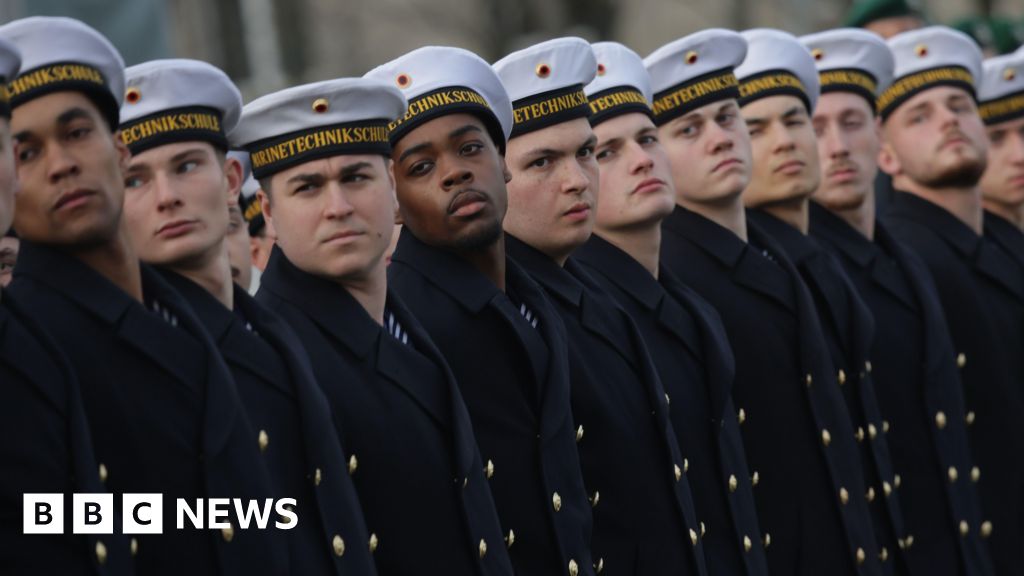
Germany’s ruling coalition has reached consensus on a revised military service strategy to enhance troop levels after extensive negotiations among political groups.
Under the new military service strategy, all males turning 18 will need to complete a questionnaire assessing their eligibility for service and, starting in 2027, undergo a medical evaluation.
This resolution comes as Berlin seeks to establish the strongest conventional army in Europe.
The head of Germany’s largest defense contractor, Rheinmetall, informed the BBC that he believes this objective could be achievable within five years.
Legislators are anticipated to cast their votes regarding the plan before the conclusion of 2025.
Armin Papperger remarked that Chancellor Friedrich Merz’s goal of enhancing the Bundeswehr is “attainable” and communicated to the BBC that the government is making “clear decisions”.
Earlier this year, German defense chief Gen Carsten Breuer cautioned that the Western NATO alliance needs to prepare for a potential Russian offensive within four years.
Mr. Papperger stated that he had “no crystal ball” regarding the future but concurred that Germany must be “prepared by ’29”.
When they established their coalition earlier this year, Merz’s conservative CDU/CSU along with the center-left Social Democratic SPD agreed to reintroduce military service, which would initially be voluntary.
The Bundeswehr presently comprises roughly 182,000 personnel. The new military service framework intends to raise that figure by 20,000 over the next year, aiming for a range of 255,000 to 260,000 over the following decade, bolstered by about 200,000 reservists.
Starting next year, all 18-year-old men and women will receive a questionnaire to gauge their interest in and readiness to join the military. It will be mandatory for men, while voluntary for women.
Beginning in July 2027, all men aged 18 will also be required to undergo a medical assessment to evaluate their fitness for service.
If the government’s objectives are not achieved, a form of compulsory conscription may be considered by parliament. In the event of a conflict, the military would be able to utilize the questionnaires and medical evaluations for potential recruits.
Some segments of Germany’s political left remain staunchly opposed to mandatory service.
A considerable number of young Germans are skeptical, with a large percentage against it. A recent Forsa survey conducted for Stern magazine indicated that while just over half of respondents supported compulsory service, opposition increased to 63% among those aged 18 to 29.
“I don’t want to go to war because I don’t wish to die or be shot at,” stated Jimi, a 17-year-old student from Berlin who participated in an anti-conscription demonstration outside the Bundestag recently. “I also don’t want to shoot people.”
An attack on Germany was characterized as an “unlikely and abstract scenario” that the government was using to rationalize “taking away millions of young people’s right to decide their own paths,” he expressed.
Conversely, 21-year-old Jason enlisted as a new Bundeswehr recruit earlier this year due to the existing “security climate”.
“I wanted to help defend peace, to safeguard democracy if the worst occurs,” he commented. By joining, he felt he was “giving back to society” but also believed in the deterrent capabilities of the military, “so that potential adversaries do not even consider attacking you”.
Defense Minister Boris Pistorius has made efforts to comfort the German populace, asserting that despite the new military service initiative, there was “no cause for worry… no reason for fear”.
“The more capable our armed forces are in terms of deterrence and defense—through weaponry, training, and personnel—the less probable it is that we will become involved in any conflict,” Pistorius remarked.
German defense expenditures fell significantly after the Cold War concluded, while conscription was halted in 2011.
Considering its history, Germany has always been cautious about displaying military strength, but earlier this year Friedrich Merz stated that the policy regarding German defense “must be whatever it takes,” following Russia’s full-scale invasion of Ukraine.
NATO countries across Europe have faced pressure from President Donald Trump’s administration to increase their military spending.
European initiatives to rearm have generated substantial income for Rheinmetall.
Its CEO, Armin Papperger, whose company also supplies Ukraine, stated: “We are profiting significantly due to a massive demand.”
“We need to enhance our capabilities in vehicles and ammunition, and develop our own satellite competencies. We are expanding our work in electronics and artificial intelligence more than ever before,” he noted.
A US report last year suggested that the Rheinmetall chief had been targeted in a Russian assassination scheme. There was no verification at the time, and Mr. Papperger refrained from commenting on the report, stating: “I feel good, I feel secure.”
When asked if he perceived Europe as being in a state of cold or hybrid war, he replied: “Regardless of the terminology, it is not a peaceful era.”

